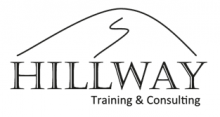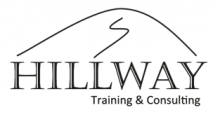Program: Difficult Conversations Training
Duration: 2 days
Objective: To develop skills for managing difficult conversations effectively, including techniques for handling emotions, delivering tough messages, and achieving positive outcomes in challenging situations.
Day 1: Fundamentals of Managing Difficult Conversations
09:00 – 09:30 | Introduction and Opening
- Welcome participants and outline the objectives and agenda of the training.
- Introduction to difficult conversations: why they are challenging and the impact of handling them well or poorly.
09:30 – 11:00 | Understanding the Dynamics of Difficult Conversations
- Key elements of difficult conversations: emotions, perspectives, and stakes.
- Identifying common types of difficult conversations in the workplace: performance feedback, conflict resolution, addressing sensitive issues.
- Exercise: Self-reflection on past difficult conversations and identifying personal challenges.
11:00 – 11:15 | Coffee Break
11:15 – 13:00 | Preparing for a Difficult Conversation
- The importance of preparation: setting objectives, anticipating reactions, and planning the structure of the conversation.
- Techniques for framing the conversation: starting with a purpose, being clear and direct, and setting a positive tone.
- Exercise: Preparation workshop — planning a difficult conversation using a structured approach.
13:00 – 14:00 | Lunch
14:00 – 15:30 | Managing Emotions: Yours and Theirs
- Understanding the role of emotions in difficult conversations: how they can derail or support the conversation.
- Techniques for managing your own emotions: staying calm, practicing mindfulness, and self-regulation.
- Techniques for managing the other person’s emotions: empathy, de-escalation, and active listening.
- Exercise: Role-playing to practice emotional management techniques in real-life scenarios.
15:30 – 15:45 | Coffee Break
15:45 – 17:00 | Effective Communication in Difficult Conversations
- Key communication skills: active listening, asking open-ended questions, and using “I” statements.
- How to ensure clarity and avoid misunderstandings during difficult conversations.
- Exercise: Practice effective communication skills through simulated conversations.
Day 2: Advanced Techniques for Difficult Conversations
09:00 – 09:15 | Recap and Reflection on Day One
- Review key learnings from Day One.
- Introduction to advanced techniques for managing difficult conversations.
09:15 – 10:45 | Delivering Tough Messages with Confidence
- How to deliver tough messages without damaging relationships: balancing honesty with empathy.
- Techniques for delivering feedback, addressing performance issues, and handling disciplinary conversations.
- Exercise: Role-playing delivering tough messages in various scenarios.
10:45 – 11:00 | Coffee Break
11:00 – 12:30 | Navigating Conflict in Difficult Conversations
- Identifying and understanding the root causes of conflict in conversations.
- Techniques for conflict resolution: finding common ground, collaborative problem-solving, and mediation.
- Exercise: Conflict resolution simulation — navigating a difficult conversation with conflicting parties.
12:30 – 13:30 | Lunch
13:30 – 15:00 | Dealing with Resistance and Defensiveness
- Understanding why people become defensive and how to respond effectively.
- Techniques for defusing defensiveness: staying non-confrontational, acknowledging feelings, and reframing the conversation.
- Exercise: Practice handling resistance and defensiveness through role-playing scenarios.
15:00 – 15:15 | Coffee Break
15:15 – 16:30 | Moving Towards Positive Outcomes
- How to close difficult conversations constructively: summarizing, agreeing on next steps, and ensuring follow-up.
- Strategies for turning difficult conversations into opportunities for growth and improvement.
- Exercise: Case studies and simulations on achieving positive outcomes from difficult conversations.
16:30 – 17:00 | Closing and Summary
- Summary of key aspects of managing difficult conversations.
- Q&A session and discussion of next steps for personal and professional development.
- Presentation of certificates of completion.
Participants will learn:
- Understand the Dynamics of Difficult Conversations: Gain insights into what makes conversations difficult, including the role of emotions, differing perspectives, and high stakes, and learn how to navigate these dynamics effectively.
- Prepare Effectively for Difficult Conversations: Learn how to prepare for difficult conversations by setting clear objectives, anticipating potential reactions, and planning the conversation structure to achieve the best outcomes.
- Manage Emotions During Conversations: Develop skills to manage both their own emotions and those of others during difficult conversations, using techniques like mindfulness, empathy, and de-escalation.
- Communicate Effectively in Challenging Situations: Master key communication skills such as active listening, asking open-ended questions, and using “I” statements to enhance clarity and reduce misunderstandings.
- Deliver Tough Messages with Confidence and Sensitivity: Learn how to deliver tough messages in a way that balances honesty with empathy, maintaining relationships while addressing critical issues.
- Navigate Conflict and Resolve Disagreements: Understand how to identify the root causes of conflict and apply conflict resolution techniques to find common ground and collaborative solutions.
- Handle Resistance and Defensiveness: Gain techniques to deal with resistance and defensiveness in conversations, helping to keep discussions constructive and focused on resolution.
- Achieve Positive Outcomes from Difficult Conversations: Learn how to close conversations on a positive note, summarizing key points, agreeing on next steps, and ensuring that conversations lead to growth and improvement.
Participants will understand how to:
- Prepare and structure difficult conversations, ensuring clear objectives and a constructive approach.
- Manage emotions effectively, both their own and those of the other person, to keep the conversation on track.
- Communicate clearly and empathetically, using techniques that foster understanding and reduce defensiveness.
- Deliver tough messages with confidence, balancing honesty with empathy to maintain relationships.
- Resolve conflicts and disagreements, applying techniques that turn contentious discussions into collaborative problem-solving sessions.
- Handle resistance and defensiveness, keeping the conversation productive and focused on resolution.
- Conclude difficult conversations positively, ensuring that all parties are clear on the next steps and committed to moving forward constructively.
- Transform challenging interactions into opportunities for growth, using difficult conversations as a tool for personal and professional development.
This training will equip participants with the skills and confidence needed to handle difficult conversations effectively, turning potential conflicts into opportunities for constructive dialogue and positive change in the workplace.
















































